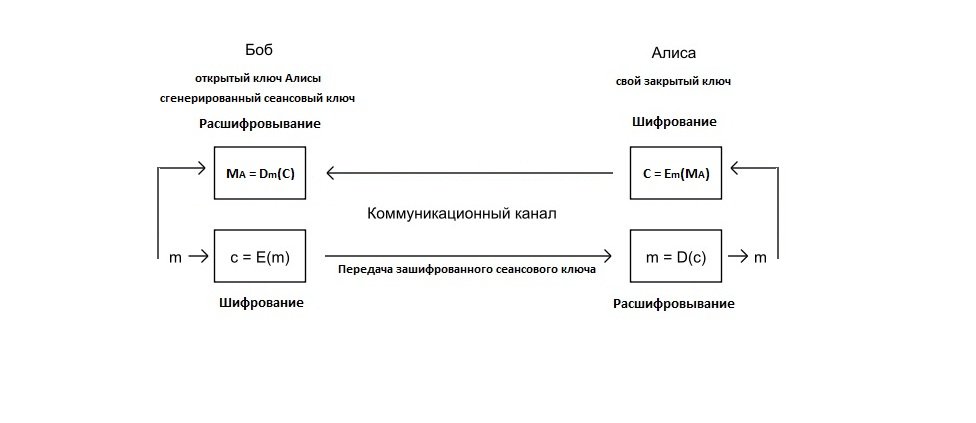In today’s interconnected world, where more and more transactions and interactions occur online, the security of customer data has become paramount. With the ever-present threat of cyber-attacks looming over businesses and individuals alike, it has become crucial to fortify our digital fortresses to safeguard sensitive information and protect financial transactions. In this article, we will explore innovative strategies and powerful precautions that can be taken to ensure the utmost security for your customer data and transactions. Let us embark on a journey to weave an impenetrable digital shield, ensuring peace of mind for both businesses and their valued customers.
Table of Contents
- Creating a Strong Security Infrastructure: How to Fortify and Protect Customer Data & Transactions
- The Importance of Encryption: Safeguarding Sensitive Customer Information
- Implementing Multi-Factor Authentication: Strengthening Authentication and Preventing Unauthorized Access
- Stay One Step Ahead: Regular Security Audits and Updates to Keep Your Digital Fortress Secure
- Q&A
- Closing Remarks

Creating a Strong Security Infrastructure: How to Fortify and Protect Customer Data & Transactions
Whether you are a small e-commerce startup or an established enterprise, safeguarding customer data and transactions is paramount in today’s digital landscape. Building a strong security infrastructure is essential to protect both your reputation and your customers’ trust. Here are some key steps you can take to fortify your digital fortress and ensure the safety of sensitive information:
1. Implement multi-factor authentication (MFA): Require users to provide multiple forms of identification before accessing their accounts. This could include passwords, biometric data (such as fingerprints or facial recognition), or one-time codes sent to their registered mobile numbers or email addresses. By adding an extra layer of security, you can significantly reduce the risk of unauthorized access.
2. Encrypt customer data during transmission and storage: Utilize SSL/TLS protocols to encrypt data in transit between your website and your customers’ devices. In addition, implement strong encryption algorithms to safeguard customer data stored on your servers. Encryption converts sensitive information into unreadable code, making it significantly harder for hackers to decipher even if they manage to access it.
3. Regularly update and patch your systems: Cybercriminals are constantly evolving their techniques, so it’s crucial to keep your software, operating systems, and plugins up to date. These updates often include security patches that address known vulnerabilities, minimizing the risk of exploitation by malicious actors.
4. Train employees in cybersecurity best practices: Human error can often be the weakest link in an otherwise secure infrastructure. Provide comprehensive training to all staff members, ensuring they understand the importance of strong passwords, recognizing phishing attempts, and following proper data handling procedures. By empowering your employees with knowledge, you can mitigate the potential for unwittingly compromising customer data.
Remember, a strong security infrastructure is an ongoing commitment. Regularly test your security measures and stay informed about the latest threats and trends in cybersecurity. By taking these proactive steps, you can fortify your digital fortress, protect customer data, and build lasting trust with your audience.
The Importance of Encryption: Safeguarding Sensitive Customer Information
In today’s digital age, safeguarding customer information has become more important than ever before. With cyber threats on the rise, businesses must fortify their digital fortresses to protect sensitive data and transactions. One of the most powerful tools at their disposal is encryption.
Encryption acts as a shield, protecting customer information from prying eyes and hackers. It involves converting data into a code that can only be deciphered with the right encryption key. By doing so, businesses can ensure that even if data is intercepted, it remains useless to anyone without the proper authorization. This is particularly crucial when it comes to sensitive information such as credit card details, social security numbers, and passwords. Without encryption, this valuable data would be vulnerable to theft and misuse.
But the importance of encryption goes beyond just preventing data breaches. Take, for example, online banking. When you log in to your bank’s website, you want to be confident that your transactions are secure. Encryption plays a key role in this process by encrypting your account details and transaction data. Not only does this protect your finances, but it also enhances trust in online banking platforms. Knowing that their information is encrypted, customers feel more comfortable conducting financial transactions online.
Moreover, encryption is not just limited to online banking. It is utilized in various other industries as well. Healthcare organizations use it to safeguard patient records, ensuring that sensitive medical information remains confidential. E-commerce websites employ encryption to secure customer payment details and personal information. Even messaging apps utilize end-to-end encryption to guarantee the privacy and security of users’ conversations.
In conclusion, when it comes to safeguarding sensitive customer information, encryption is an essential tool in fortifying your digital fortress. It provides a layer of protection that not only prevents data breaches but also instills trust in customers. By employing encryption, businesses can ensure that their customers’ data and transactions remain secure in the ever-evolving digital landscape.
Implementing Multi-Factor Authentication: Strengthening Authentication and Preventing Unauthorized Access
Implementing Multi-Factor Authentication (MFA) is crucial in fortifying your digital fortress and safeguarding customer data and transactions. By adding an extra layer of security, MFA enhances authentication protocols and prevents unauthorized access to sensitive information. So, how exactly does it work and why is it so effective?
1. Strengthen Authentication: With MFA, users are required to provide multiple forms of identification, making it significantly harder for cybercriminals to breach your system. This can include a combination of something the user knows (e.g., a password), something the user has (e.g., a smartphone or token), and something the user is (e.g., biometrics like fingerprint or facial recognition). By requiring multiple factors, MFA ensures that even if one factor is compromised, the chances of a successful breach are drastically reduced.
2. Prevention of Unauthorized Access: Implementing MFA adds an additional barrier between malicious actors and your valuable data. For example, imagine a scenario where a fraudster obtains a user’s password through a phishing attack. Without MFA, this alone would grant the fraudster complete access to the user’s account. However, with MFA enabled, the fraudster would still be unable to log in unless they also possessed the necessary secondary factor, such as a fingerprint scan or a unique code generated by an authenticator app.
Implementing Multifactor Authentication is a powerful way to protect your digital assets. By requiring users to provide multiple forms of identification, you strengthen authentication and make it much harder for unauthorized access to occur. Whether it’s securing customer data, preventing fraudulent transactions, or safeguarding personal information, MFA is an essential tool in the fight against cyber threats. So, remember to implement MFA and fortify your digital fortress with this effective security measure.
Stay One Step Ahead: Regular Security Audits and Updates to Keep Your Digital Fortress Secure
Regular security audits and updates are crucial in today’s digital landscape to ensure the protection of customer data and transactions. By staying one step ahead, you can fortify your digital fortress and establish trust with your customers. Here are a few key reasons why you should prioritize these practices:
1. Identify vulnerabilities: Conducting regular security audits allows you to proactively detect vulnerabilities in your systems and applications. These audits can help uncover potential weaknesses in your infrastructure, such as outdated software, inadequate encryption protocols, or configuration errors. By staying vigilant, you can address these vulnerabilities before they are exploited by cybercriminals.
2. Strengthen defenses: Just like a physical fortress, your digital fortress needs solid defenses. Regular security updates are essential for patching security loopholes and fixing bugs in software applications, operating systems, and plugins. By promptly installing these updates, you can ensure that your systems are equipped with the latest security measures, protecting your business and your customers from potential threats.
To put things into perspective, imagine a scenario where an e-commerce platform fails to conduct a security audit for several months. During this time, a vulnerability in their payment gateway is discovered by hackers. Due to the lack of updates, this vulnerability remains unaddressed, leaving customer payment information exposed. As a result, the platform experiences a significant data breach, causing not only financial losses but also a loss of trust among customers.
Regular security audits and updates are crucial in preventing such incidents and safeguarding both your customers’ data and your brand reputation. By staying proactive, you can ensure that your digital fortress remains impenetrable and that your customers’ trust remains intact.
Q&A
Q: Why is it necessary to fortify your digital fortress?
A: Protecting customer data and transactions has become crucial in today’s digital age. Hackers and cybercriminals are constantly devising new ways to breach security systems, making it imperative for businesses to fortify their digital fortresses and safeguard sensitive information.
Q: What steps can businesses take to fortify their digital fortresses?
A: Businesses can implement various measures to enhance their cybersecurity. These include employing strong encryption algorithms, implementing multi-factor authentication, regularly updating software and security patches, conducting regular security audits, and training employees to identify and report potential threats.
Q: What are the potential consequences if customer data and transactions are not safeguarded?
A: Failing to protect customer data and transactions can result in severe consequences for businesses. This includes financial loss due to theft or fraudulent activities, reputational damage, legal liabilities, and loss of trust and confidence from customers and stakeholders.
Q: How does strong encryption help safeguard customer data and transactions?
A: Strong encryption plays a crucial role in safeguarding customer data and transactions. It ensures that information transmitted or stored is transformed into an unreadable format, making it extremely difficult for hackers to decipher. This helps maintain the confidentiality and integrity of sensitive information.
Q: Can you explain multi-factor authentication and its importance in protecting customer data?
A: Multi-factor authentication is a security method that requires users to provide multiple forms of identification to gain access to a system. By combining something the user knows (password), something the user has (authentication token), and something the user is (biometrics), the risk of unauthorized access is significantly reduced. Implementing multi-factor authentication adds an extra layer of protection to customer data and transactions, making it more difficult for hackers to gain unauthorized access.
Q: Why is it necessary to regularly update software and security patches?
A: Regularly updating software and security patches is essential to address vulnerabilities and strengthen the digital fortress. Cybercriminals often exploit weaknesses in outdated software to gain unauthorized access. By promptly updating systems, businesses can eliminate these vulnerabilities and reduce the risk of security breaches.
Q: How can businesses ensure the effectiveness of their security measures?
A: Regular security audits are vital for evaluating the effectiveness of security measures. These audits help identify any existing vulnerabilities, assess the strength of security protocols, and ensure compliance with industry standards and regulations. By conducting regular audits, businesses can proactively identify and address potential weaknesses before they are exploited.
Q: How can proper employee training contribute to safeguarding customer data?
A: Proper employee training is critical in fortifying the digital fortress. Employees should be educated on best practices for data protection, such as recognizing phishing attempts, using secure passwords, and understanding the importance of handling customer data with care. By creating a security-conscious workforce, businesses can significantly reduce the risk of human error and strengthen their overall cybersecurity posture.
Q: What is the long-term benefit of fortifying the digital fortress and safeguarding customer data?
A: Fortifying the digital fortress and safeguarding customer data offers long-term benefits for businesses. These include maintaining customer trust, minimizing the risk of financial losses, protecting the company’s reputation, and ensuring compliance with data protection regulations. By prioritizing cybersecurity, businesses can establish themselves as trusted entities and gain a competitive edge in the digital landscape.
Q: Any additional tips to fortify the digital fortress?
A: In addition to the mentioned measures, it is essential to regularly backup data to avoid potential loss, implement a strict access control policy, and stay informed about the latest cybersecurity threats and trends. By being proactive and adapting to evolving threats, businesses can build a robust digital fortress that effectively safeguards customer data and transactions.
Closing Remarks
As we step back from the exhilarating world of digital security, one thing becomes abundantly clear: safeguarding customer data and transactions is not just a mere obligation, but an ongoing battle in the vast expanse of the online realm. Armed with technological advances and a fortified mindset, we can now embark on a mission to protect the cornerstone of any thriving business – trust.
In this ever-evolving digital fortress, we have explored the intricacies of privacy measures, encrypted fortifications, and the importance of multi-factor authentication. We have witnessed how cybercriminals constantly adapt, endeavoring to breach the resilient walls guarding our customers’ most valuable assets. But fear not, for we possess a mighty arsenal of tools at our disposal.
By weaving together cutting-edge firewalls and state-of-the-art intrusion detection systems, we have constructed an impenetrable barrier that swerves away the most cunning attacks known to man. Let us be vigilant in our fight against those seeking to exploit vulnerabilities, for our customers deserve nothing less than an ironclad defense.
Remember, dear reader, that your digital fortress should not only guard against external threats but also nurture a culture of awareness and proactive defense within your organization. Thorough staff training and regular assessments are the keys to ensuring that every brick laid in your fortress is fortified with knowledge and expertise.
As you venture forth into the boundless landscape of e-commerce, always remember that trust is the bedrock upon which success is built. Like a skilled architect, you have the responsibility to wield your knowledge and tools with care, constructing awe-inspiring fortresses fortified against any digital onslaught.
With every customer interaction, each transaction securely guarded, your digital fortress becomes a beacon of trust, drawing customers in from far and wide. So raise your virtual banners high, knowing that within these walls, your customers can rest easy, confident that their data and transactions are safe within your watchful gaze.
And now, as we bid you farewell from the realm of digital security, go forth with courage, dedication, and a fervent commitment to safeguarding what matters most – that fragile yet resilient bond between your valued customers and your trusted enterprise. May your digital fortress stand tall, unwavering amidst the stormy seas of the digital era.

